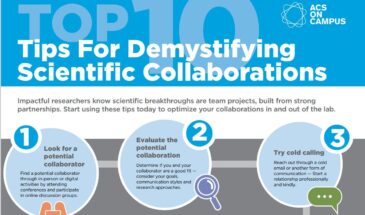
Demystifying Collaborations (PDF)
Science is no longer a solo activity. It’s a team event, bringing together researchers from different institutions all over the world with a common goal.
You don't have to be on campus to benefit from all ACS on Campus has to offer. Check out our favorite resources.
Become a part of the ACS community. You'll join a network of nearly 157,000 chemists from around the world, get discounts on meetings and courses, gain access to exclusive career services, and much more! Join now through ACS on Campus and all 2025 attendees receive one-year free premium membership.

Science is no longer a solo activity. It’s a team event, bringing together researchers from different institutions all over the world with a common goal.
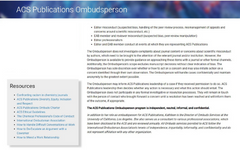
The purpose of the Ombudsperson is to serve as an independent liaison between ACS Publications and the chemistry community to address concerns about Editors, Editorial Advisory Board (EAB) members or reviewers regarding the peer review process.
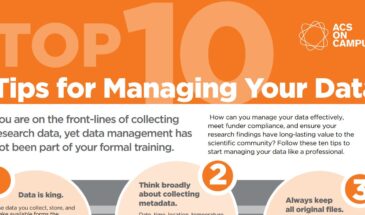
Follow these tips to manage research data effectively, meet funder compliance, and ensure your findings have long-lasting value to the scientific community.
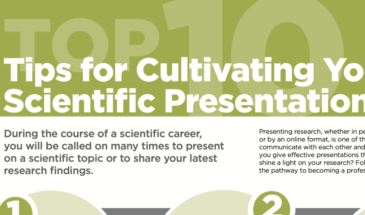
How can you give effective presentations that engage your audience and shine a light on your research? Follow these ten tips to start on the pathway to becoming a professional presenter.
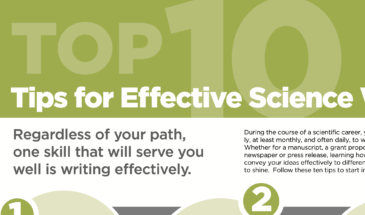
Whether for a manuscript, a grant proposal, or in a public forum like a news article or press release, learning how to use the written word to convey your ideas effectively to different audiences will position you to shine. Follow these ten tips to start improving your writing today.
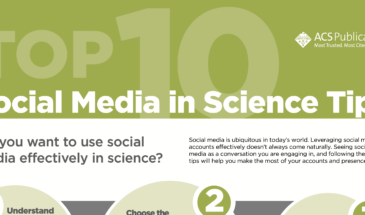
Sure, you're on social media, but how can you use it to communicate your science? Following these ten tips will help you make the most of your accounts and presence.
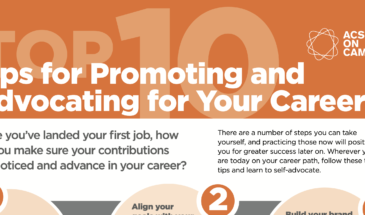
How can you make sure your contributions are noticed and help you advance in your career? Follow these ten steps to position yourself for greater success!
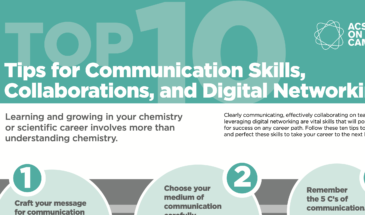
Learning and growing in your chemistry or scientific career involves more than understanding chemistry. Follow these ten tips to develop and perfect these skills to take your career to the next level.
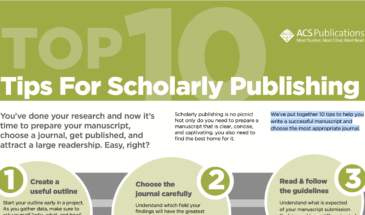
You’ve done your research and now it’s time to prepare your manuscript, choose a journal, get published, and attract a large readership. The ACS Editors have put together 10 tips to help you write a successful manuscript and choose the most appropriate journal.

Curious about the benefits of joining or starting an ACS-GSO? You’ll participate in a wide range of programs and activities that will enhance your grad school experience and prepare you for a successful career.
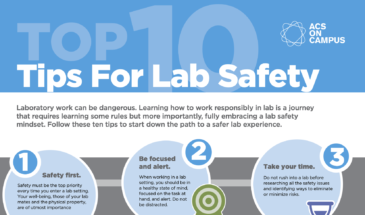
Laboratory work can be dangerous. Learning how to work responsibly in lab is a journey that requires learning some rules but more importantly, fully embracing a lab safety mindset. Follow these ten tips to start down the path to a safer lab experience.
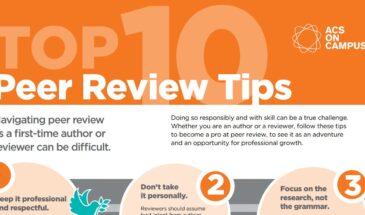
Navigating peer review as a first-time author or reviewer can be difficult. Follow these tips to become a pro at peer review, to see it as an adventure and an opportunity for professional growth.
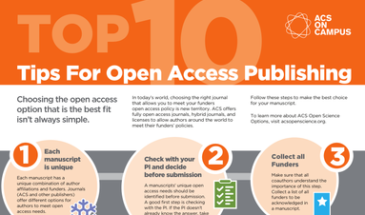
Choosing the right journal that allows you to meet your funders' open access policy is new territory. ACS offers fully open access journals, hybrid journals, and licenses to allow authors around the world to meet funders’ policies.
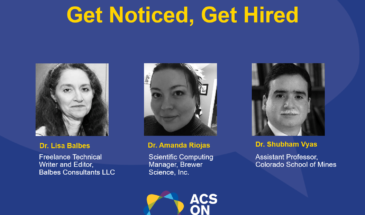
Webinar moderated by Lisa Balbes, Ph.D., featuring Amanda Riojas, Ph.D. and Shubham Vyas, Ph.D.
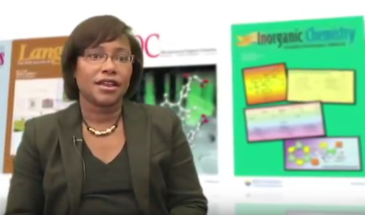
Episode 2: Writing Your Cover Letter - featuring interviews with Inorganic Chemistry Editor Richard Eisenberg, Macromolecules Editor Timothy Lodge, ACS Nano Associate Editors Paula Hammond and Jason Hafner.
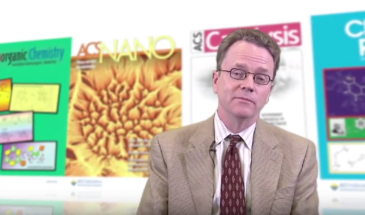
Episode 3: Selecting Peers to Suggest as Reviewers - featuring interviews with Inorganic Chemistry Editor Richard Eisenberg, Macromolecules Editor Timothy Lodge, ACS Nano Associate Editors Paula Hammond and Jason Hafner.
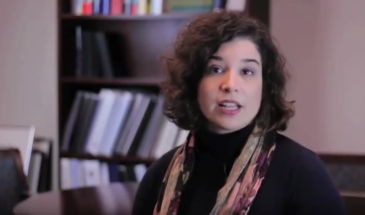
Episode 4: Submitting Your Manuscript - focusing on the manuscript submission process itself, providing a guide to navigating ACS's Paragon Plus peer review environment.
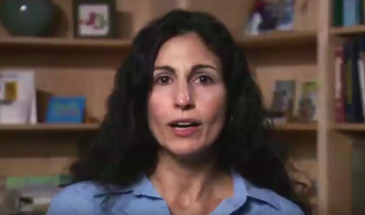
Episode 5: Ethical Considerations for Authors, Ethical Considerations for Reviewers - Ethical behavior in research and publication form the foundation of scientific discovery and communication.
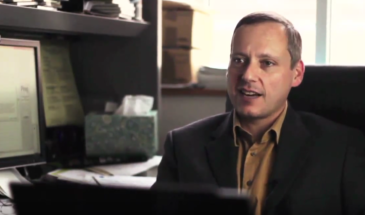
Episode 6: The Review Process for Reviewers, The Review Process for Authors - Featuring various individuals discussing what editors are looking for from reviewers, and what authors need from reviewers, including how authors should respond to reviewer comments
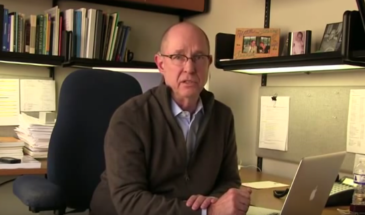
Episode 7: Open Access and ACS AuthorChoice - Featuring Lawrence J. Marnett, Ph.D, Director of the Vanderbilt Institute of Chemical Biology, and Brian Beasely, Manager of the ACS Publications Customer Services & Information Support Team

Episode 8: Tips for English as a Second Language Speakers - This episode focuses on the special challenges faced by speakers of English as a Second language. While the editors emphasize the fact that writing a good scientific article difficult in any language, it is especially difficult for non-native English speakers.

Episode 9: The Basics of Copyright and The Basics of Fair Use - Featuring Eric Slater, Senior Manager of Copyright and Licensing, Office and the Secretary and General Counsel, ACS
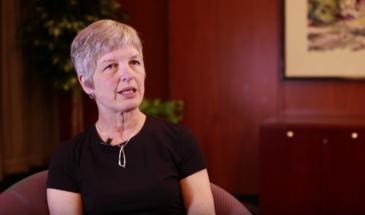
Episode 10: Overview of the Production and Publication Process - Featuring Terri Lewandowski, ACS Publications, Director Journal Production and Manufacturing Services
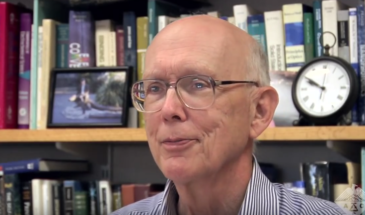
Featuring George Whitesides from Harvard University, who has published nearly 600 papers with ACS Publications, and over 1100 articles overall.
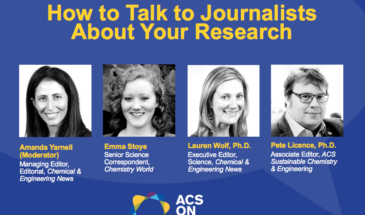
Webinar moderated by Amanda Yarnell, featuring Emma Stoye, Lauren Wolf, Ph.D., and Pete Licence, Ph.D.
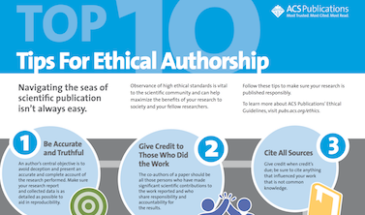
Observance of high ethical standards is vital to the scientific community. Follow these tips to make sure your research is published responsibly.
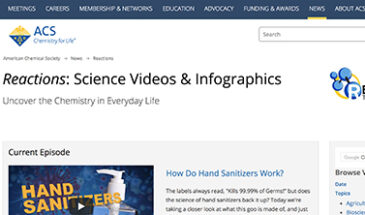
See what chemistry can do! Uncover the chemistry in everyday life with our series of science videos and infographics.
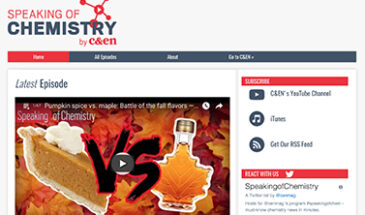
Your source for need-to-know chemistry news in minutes. The series highlights fascinating, weird and timely topics from the chemical sciences.
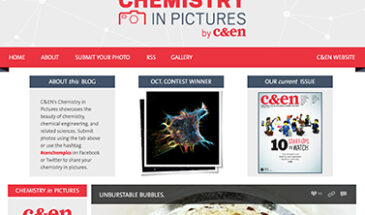
Witness the effects of chemistry in real life! See C&EN’s top photos that showcase the beauty of chemistry, chemical engineering, and related sciences. Submit your own photos using the hashtag #cenchempics on Facebook or Twitter.
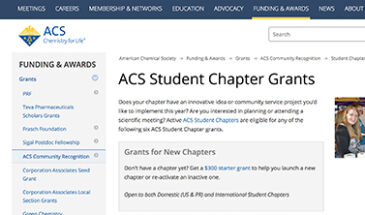
See if your ACS Student Chapter can qualify for a grant! Learn about the grants available to ACS Student Chapter members.
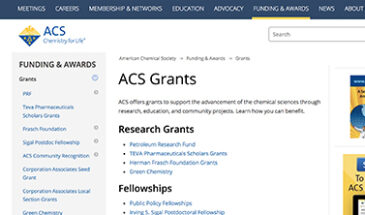
ACS offers grants to support the advancement of the chemical sciences through research, education, and community projects. Learn how you can benefit.
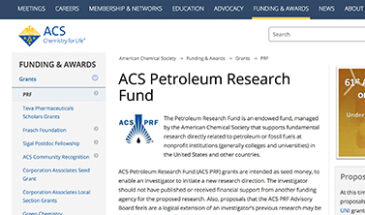
An endowed fund that supports fundamental research directly related to petroleum or fossil fuels at nonprofit institutions.

Are you a Ph.D. student or postdoctoral researcher in the US or abroad? Apply to be a SciFinder Future Leader! You’ll build your career, help shape the future of research information, and experience the ACS National Meeting & Exposition.
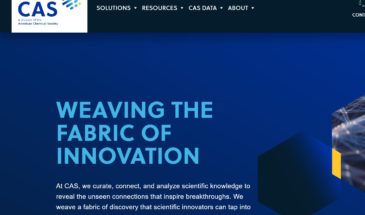
Get the downlow on the people behind SciFinder and more. CAS organizes, analyzes and shares information that drives scientific discoveries, facilitating your research to fuel tomorrow’s innovation.

Take advantage of On-demand SciFinder® training resources that are short, targeted materials, organized by search type.

SciFinder® is a research discovery application that provides integrated access to the world's most comprehensive and authoritative source of references, substances and reactions in chemistry and related sciences.
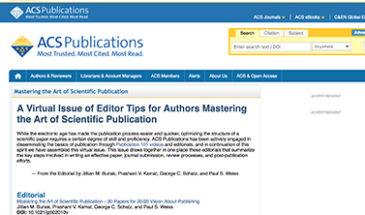
Master the art of scientific publication from the editors themselves with this special virtual issue of editor tips for authors.
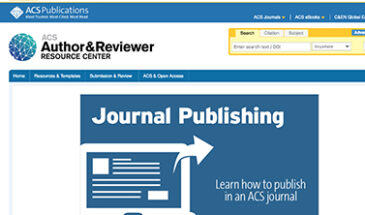
Want to publish your research in an ACS journal? Here is all the information you need on journal publishing policies, tools, and instructions.
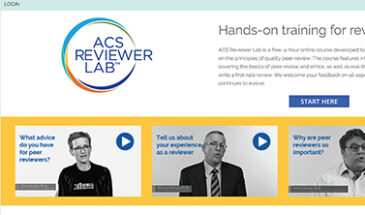
Get hands-on training with this free, 4-hour online course on the principles of quality peer-review. The course features interactive modules covering the basics of peer review and ethics, as well as real-life guidance on how to write a first-rate review.

A science podcast about things small in size but big in impact. Every other Wednesday, join hosts Sam Jones and Deboki Chakravarti as they unpack the little things that make the big things in our world (both good and bad) possible.

See the latest from ACS Publications on the Axial blog; providing ideas, insights, and advice from the scientific community.

It’s the ultimate information hub available to ACS student members. Read about experiences unique to students in the chemical sciences, navigate the job market, learn about innovative scientific advances, and get tips for leveraging your ACS membership.
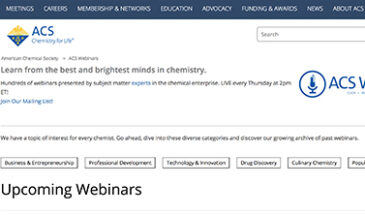
Learn from the best and brightest minds in chemistry with ACS Webinars, LIVE every Thursday at 2pm ET!
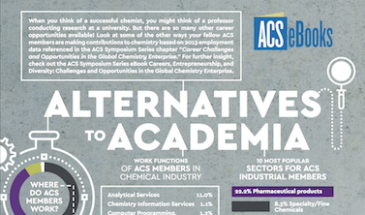
Look at some of the other ways professional chemists are making contributions to chemistry outside of the traditional roles in academia.
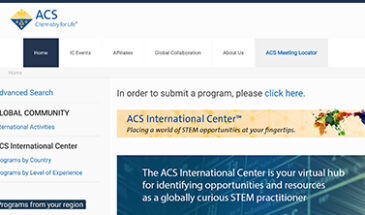
This is your essential guide for opportunities related to study abroad, research internships, and funding schemes for the globally curious STEM practitioner.
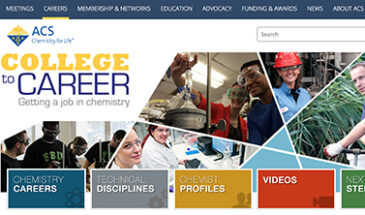
It’s a one-stop spot for resources that will help turn your degree into post-graduate success! Discover the wide range of career options in the chemical sciences and see what professional chemists are doing in the real world.

Planning your career can be overwhelming, especially as an Undergraduate. With ChemIDP you can assess yourself, strengthen your skills, set goals, and explore careers all in one place!
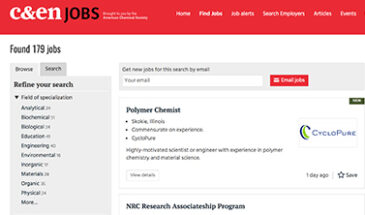
Looking for a new position? C&EN Jobs is where today's brightest minds go to enrich their careers, and where smart companies turn for the talent to drive innovation, growth, and gain a keen competitive advantage.
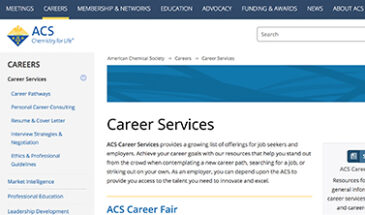
Achieve your career goals with ACS resources - stand out from the crowd, explore new career paths, search for a job, and more with ACS by your side.
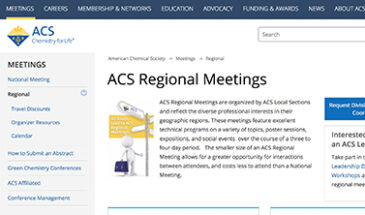
Want a more intimate meeting that’s low cost? Attend an ACS Regional Meeting, which feature excellent technical programs and plenty of social events over the course of 3-4 days.
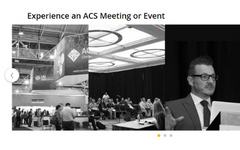
Join thousands of chemists from around the world at ACS National Meetings. You’ll grow your network, discover new research, advance your career, and discover new technologies.
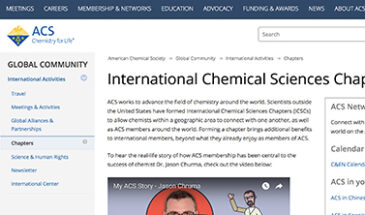
Connect with other chemists in your area, as well as ACS members around the world! Find your country’s chapter or form your own community! The opportunities are endless.

Stay active as a chemist and get involved in your community through your Local Section! They provide a forum for networking, collaboration and support chemists’ efforts to educate their community about chemistry.
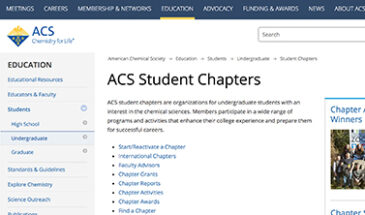
Curious about the benefits of joining or starting a chapter? You’ll participate in a wide range of programs and activities that will enhance your college experience and prepare you for a successful career.

The ACS Member Handbook is your ultimate guide to ACS member resources for professional growth and success.
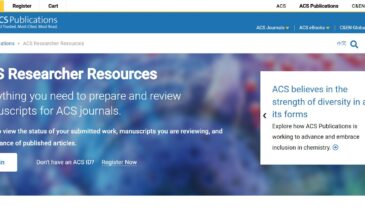
Resources, templates, and guides - everything you need to know to get your research published.

Want to create a poster that successfully presents your research findings in a compelling way? Follow these 10 tips to creating a knockout poster.
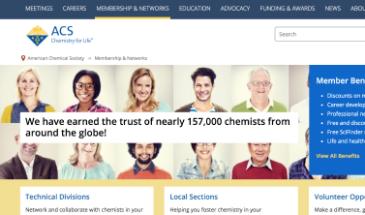
Become a member of the ACS and join a community of nearly 157,000 chemists from across the globe!
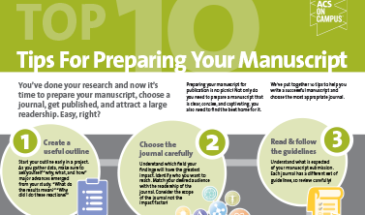
Preparing your manuscript for publication is no picnic! Check out our top 10 tips to help you write a successful manuscript.
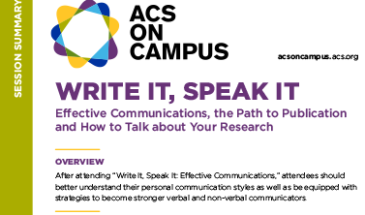
Need a refresher on the ACS on Campus sessions? Browse our summary sheets.